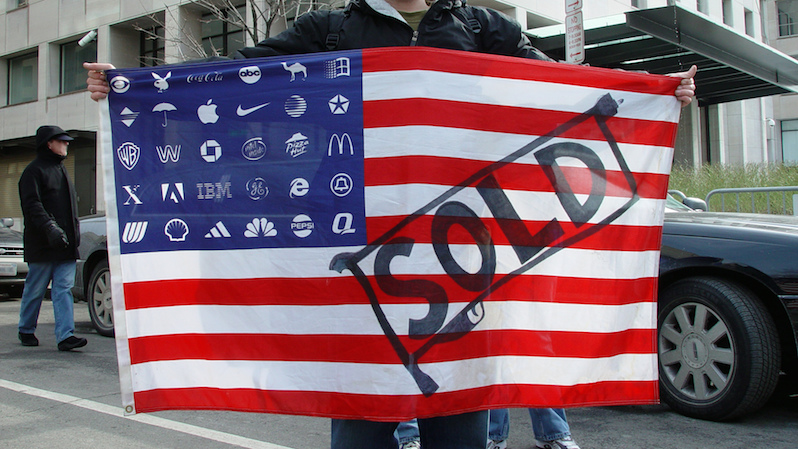Clinton and Trump Are Rich and Pals of the Rich—and That Could Be a Huge Problem for the Nation
Whatever the differences between the two nominees, either will function as an emissary of the powerful who control America. That’s the conflict of interest we all should be talking about. The connection between America's corporate oligarchy and the major-party presidential nominees raises crucial questions in this election. (Jonathan McIntosh / CC BY-SA 2.0)
1
2
The connection between America's corporate oligarchy and the major-party presidential nominees raises crucial questions in this election. (Jonathan McIntosh / CC BY-SA 2.0)
1
2

The connection between America’s corporate oligarchy and the major-party presidential nominees raises crucial questions in this election. (Jonathan McIntosh / CC BY-SA 2.0)
Independent journalism is under threat and overshadowed by heavily funded mainstream media.
You can help level the playing field. Become a member.
Your tax-deductible contribution keeps us digging beneath the headlines to give you thought-provoking, investigative reporting and analysis that unearths what's really happening- without compromise.
Give today to support our courageous, independent journalists.






You need to be a supporter to comment.
There are currently no responses to this article.
Be the first to respond.